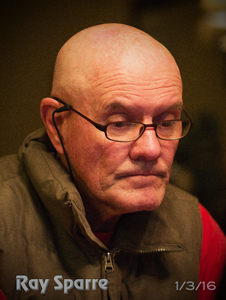
Good afternoon, Zane.
We have our good long-standing friends with us at present—Elvin and Eunice. Earlier this morning Elvin agreed to go along with me and the two dogs for a little gentle old people walk/jog. The dogs were able to get in their little swims in the creek along the way. Then we went to church and were blessed by a terrific service and message. Of course for many in our perverted culture, today is HALLOWEEN—but for those of us who are protestant Bible-believers, today is REFORMATION DAY—commemorating the impact that Martin Luther had by his taking such a bold stand against the religious tyranny of the Catholic Church—for which we believers must be eternally grateful—the Christian Church’s DECLARATION OF INDEPENDENCE AND FREEDOM! There is still some standing up against impending tyranny for us to do.
Hope you’re doing well—and standing where you should. Love and prayers. Tua (Ray)
Notice what this woman did not do. She did not run back to the village and proclaim, “Hey, folks, listen up! I found the Christ! You must go out to meet Him!” Very likely most who heard such words would have responded, “Oh sure!—right!—fat chance!”—and would have carried on with what they were doing. But what this woman did do is (1) she gave a brief word of testimony of what Jesus had said and done to her, and (2) she appealed to the interest and curiosity side of people by simply raising a question that can only be addressed when the hearers check into the matter for themselves—“Could this not be the Christ?” I think we can learn a lesson or two from this Samaritan lady.
I remember very little from a course in Philosophy that I took a long time ago. But I do remember that the professor was quite fond of the Greek philosopher/teacher, Socrates. I remember that Socrates was a skilled technician in asking questions that would lead a student to a desired logical conclusion. This form of teaching and learning has come to be known as the Socratic Method. It has, in many cases, proved to be far more effective than the cold, cut-and-dried lecture method. It’s a method that this woman used with her fellow villagers. And it was highly successful. Many who went out to see and hear Jesus came to exclaim later to this woman, “We no longer believe just because of what you said; now we have heard for ourselves and we know that this man really is the Savior of the world” (John 4:42). I think that represents the ideal conversion experience.
I want to end with this personal pertinent question: Can you think of some good questions to ask and raise in the minds of people you know or meet that could lead them to investigate for themselves the claims of Christ and the validity of God’s Word?